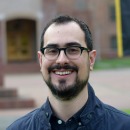Page 15 • (460 results in 0.019 seconds)
-
Videos Spotlighting the Master of Business AdministrationPut Theory Into Practice with an MBALearning goes further than just the classroom. In this video, Juanita Reed, Associate Dean for Academic Affairs from PLU School of Business, discusses how MBA students take their experiences and what they have learned beyond the classroom and apply it in many different industries.PLU MBA International Experience: PERUPLU MBA students spent their spring break exploring Peru, from large corporations in
-
336: Deviance SOCI 413: Criminological Theory SOCI 495: Internship SOCI 499: Capstone STAT 233: Introductory Statistics 4 semester hours of a SOCI Inequality Elective course. Choose from SOCI 210 (Gender and Society), 240 (Social Problems), 332 (Race and Ethnicity), or 410 (Social Stratification). 4 semester hours of a Criminal Justice Elective course. Choose from SOCI 226 (Delinquency and Juvenile Justice), 287 (ST in Criminal Justice), 387 (ST in Criminal Justice), SOCI 494 (Gender and Violence
-
SOCI 232: Research Methods SOCI 330: Family or SOCI 336: Deviance SOCI 496: Sociological Theory SOCI 499: Capstone STAT 233: Introductory Statistics 4 semester hours of a 200-level SOCI course. Choose from 210 (Gender and Society), 240 (Social Problems), or 287 (ST in Sociology). 4 semester hours of a 400-level SOCI course. Choose from 410 (Social Stratification), 494 (Gender and Violence), or 495 (Internship). Plus: 8 semester hours of SOCI electives not used above. Choose from 210 (Gender and
-
New Faculty 3320 Jennifer Rhyne wins national search for assistant professor of music and music theory position Mandi LeCompte October 31, 2016 New Faculty 332 Views Read more
-
New Faculty 3320 Jennifer Rhyne wins national search for assistant professor of music and music theory position Mandi LeCompte October 31, 2016 New Faculty 332 Views Read more
-
change. From Abolitionist cartoons to contemporary Chicano mural paintings, visual artists have challenged injustice and inspired movements committed to just and peaceful change. In this presentation, we consider the work of contemporary artists who contribute to this often unknown yet vital source of social justice. 3:45 – 4:45 p.m. – Whose Story? Critical Race Theory and the (De)Construction of the PLU Narrative Ms. Angie Hambrick, Dr. Joanna Royce Davis, and Ms. Laree Winer PLU was founded by
-

humanities International modernisms and avant-gardes Theories and representations of labor Literary and critical theory Books History, Empire, Critique: New Essays in World Literature. Ed. Asher Ghaffar Chapters "Aesthetic Re-Imaginings of Mexican Sovereignty: Esrtidentismo’s Anti-Imperialist Avant- Garde" (Routledge 2018) Selected Articles "No Useless Labor: Oscar Wilde’s De Profundis and the Importance of Intellectual Work." Textual Practice Vol. 33, no. 6, 2019: "Estridentistas de Estado: la
Office HoursM & W: 1:00 pm - 2:30 pm -
purposefully integrate liberal education with the study of nursing, scholarship, and civic engagement to foster compassion and meaningful service for and with others, their communities, and the world. Nursing and Health The School of Nursing believes that nursing is a theory- and science-based discipline that focuses on person-centered care across all settings and states of health and illness. The art and science of nursing is relationship-based and directed by humanitarian values of human dignity
-
challenge you to reflect in class on how your community involvement relates to the academic theory you’re studying. That’s why PLU is different.Exploring the impact of our wordsA new multi-media campaign “My Language. My Choice. Words Mean Things” examines the meaning of words and recognizes the power that language has. Read MoreOur roots in Lutheran higher educationAt PLU, our values reflect the core elements of Lutheran higher education. University pastor Jen Rude explores these principles and how
-
audiences. Culture, History, and Power. Students will read diverse texts within their historical and cultural contexts, developing a critical understanding of how literature can both uphold and resist existing structures of power. Critical Approaches. Students will deploy ideas from works of criticism and theory in their own reading and writing. Research. Students will identify topics and formulate questions, identify appropriate methods and sources for research, and engage ethically with sources. Oral
Do you have any feedback for us? If so, feel free to use our Feedback Form.


